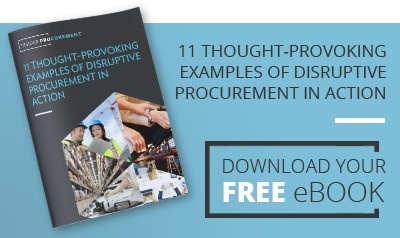There are 8 best practices all procurement teams should adopt - we listed them in our recent blog (Best Practice Procurement).
When choosing a procurement consultancy, you would, of course, expect them to adhere to best practice, but you should also demand three more very important things of them.
This blog explains what those 3 things are, and how you should go about selecting a procurement consultant.
3 Essential requirements
In a nutshell, we believe that Procurement Consultancy should deliver best practice procurement AND these 3 things simultaneously:
- Guaranteed return on investment
- Remove risk from the supply chain
- Help your team better manage procurement in the future
It shouldn't be a choice. You should be getting all three things as part of a procurement consultancy agreement.
Why?
Firstly, we feel there is little point saving money in the short term, only to let things slide in the future. That's why we equip in-house teams with the skills and knowledge they need to keep making those savings in the future.
Secondly, we strongly believe that reducing risk in the supply chain is paramount to some businesses, and therefore we will NEVER make cost savings at the expense of risk.
And thirdly, in order to guarantee a really high ROI (contact us to find out just what that would mean to you) we know that short term, unsustainable cost cutting simply isn't the way forward.
Selecting a procurement consultant - 6 tests
- Check their understanding of best practice procurement. Get examples of their approach.
- If you need a procurement consultant because you feel you've exhausted most options to reduce cost and need help, make sure you deal with a team that has a broad range of experience to apply to the problem. Ask them for examples of how they've disrupted procurement processes in the past.
- Find out what return on investment they are willing to GUARANTEE. They may need to do a little research beforehand, but if they really know their stuff, they'll be able to give you a really good idea with only a little information from you.
- Avoid anyone who promises cost savings without a discussion about potential supply chain risks and impact on the internal team. Short term savings should not be at the expense of risk, so avoid those who simply go out to tender for the lowest cost. Ask about how they approach the market.
- Make sure they have all the inside knowledge that's needed for your business - contacts, product knowledge, experience. Ask for relevant examples and to meet the people who will be actually doing the work - you may be surprised!
- Understand what will happen at the end of the assignment. Will your team be equipped to take up the reigns and continue the good work? Make sure that this coaching / handover / training is included in their standard approach.
For information about how Insider Procurement approaches procurement consultancy, download our eBook: "11 thought-provoking examples of disruptive procurement in action".

